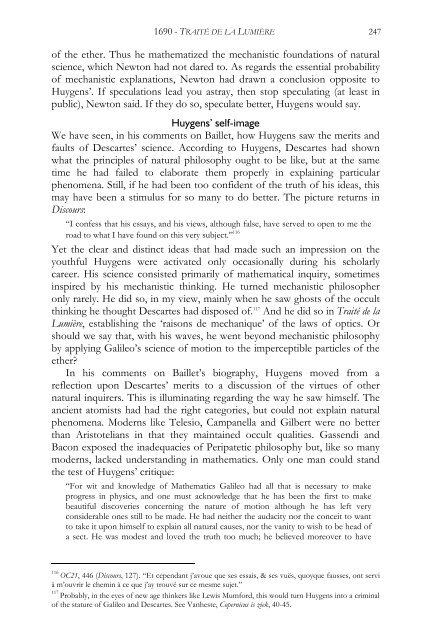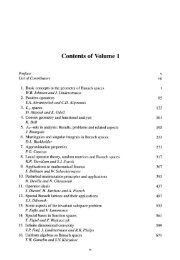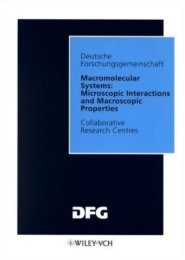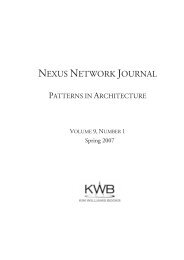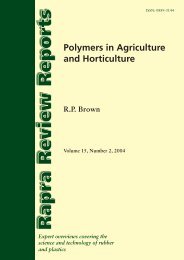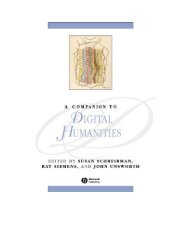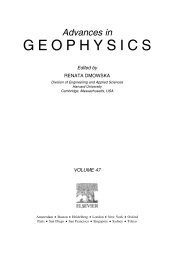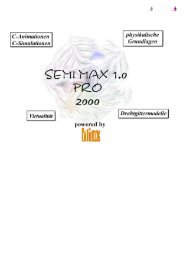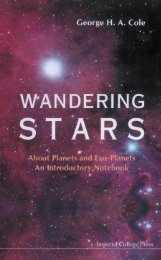Lenses and Waves
Lenses and Waves
Lenses and Waves
Create successful ePaper yourself
Turn your PDF publications into a flip-book with our unique Google optimized e-Paper software.
1690 - TRAITÉ DE LA LUMIÈRE 247<br />
of the ether. Thus he mathematized the mechanistic foundations of natural<br />
science, which Newton had not dared to. As regards the essential probability<br />
of mechanistic explanations, Newton had drawn a conclusion opposite to<br />
Huygens’. If speculations lead you astray, then stop speculating (at least in<br />
public), Newton said. If they do so, speculate better, Huygens would say.<br />
Huygens’ self-image<br />
We have seen, in his comments on Baillet, how Huygens saw the merits <strong>and</strong><br />
faults of Descartes’ science. According to Huygens, Descartes had shown<br />
what the principles of natural philosophy ought to be like, but at the same<br />
time he had failed to elaborate them properly in explaining particular<br />
phenomena. Still, if he had been too confident of the truth of his ideas, this<br />
may have been a stimulus for so many to do better. The picture returns in<br />
Discours:<br />
“I confess that his essays, <strong>and</strong> his views, although false, have served to open to me the<br />
road to what I have found on this very subject.” 116<br />
Yet the clear <strong>and</strong> distinct ideas that had made such an impression on the<br />
youthful Huygens were activated only occasionally during his scholarly<br />
career. His science consisted primarily of mathematical inquiry, sometimes<br />
inspired by his mechanistic thinking. He turned mechanistic philosopher<br />
only rarely. He did so, in my view, mainly when he saw ghosts of the occult<br />
thinking he thought Descartes had disposed of. 117 And he did so in Traité de la<br />
Lumière, establishing the ‘raisons de mechanique’ of the laws of optics. Or<br />
should we say that, with his waves, he went beyond mechanistic philosophy<br />
by applying Galileo’s science of motion to the imperceptible particles of the<br />
ether?<br />
In his comments on Baillet’s biography, Huygens moved from a<br />
reflection upon Descartes’ merits to a discussion of the virtues of other<br />
natural inquirers. This is illuminating regarding the way he saw himself. The<br />
ancient atomists had had the right categories, but could not explain natural<br />
phenomena. Moderns like Telesio, Campanella <strong>and</strong> Gilbert were no better<br />
than Aristotelians in that they maintained occult qualities. Gassendi <strong>and</strong><br />
Bacon exposed the inadequacies of Peripatetic philosophy but, like so many<br />
moderns, lacked underst<strong>and</strong>ing in mathematics. Only one man could st<strong>and</strong><br />
the test of Huygens’ critique:<br />
“For wit <strong>and</strong> knowledge of Mathematics Galileo had all that is necessary to make<br />
progress in physics, <strong>and</strong> one must acknowledge that he has been the first to make<br />
beautiful discoveries concerning the nature of motion although he has left very<br />
considerable ones still to be made. He had neither the audacity nor the conceit to want<br />
to take it upon himself to explain all natural causes, nor the vanity to wish to be head of<br />
a sect. He was modest <strong>and</strong> loved the truth too much; he believed moreover to have<br />
116 OC21, 446 (Discours, 127). “Et cependant j’avoue que ses essais, & ses vuës, quoyque fausses, ont servi<br />
à m’ouvrir le chemin à ce que j’ay trouvé sur ce mesme sujet.”<br />
117 Probably, in the eyes of new age thinkers like Lewis Mumford, this would turn Huygens into a criminal<br />
of the stature of Galileo <strong>and</strong> Descartes. See Vanheste, Copernicus is ziek, 40-45.


